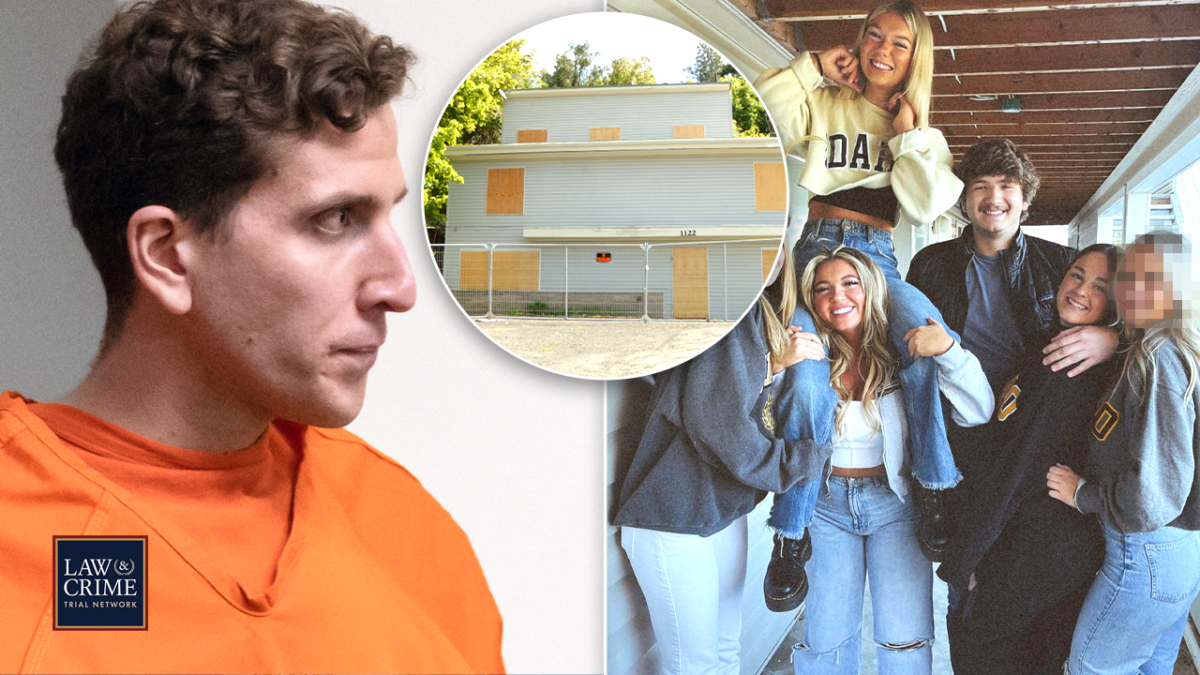Genetic genealogy and DNA, which were used to identify Bryan Kohberger, are at the center of the University of Idaho Four student murders case.
Court documents revealed a potential defense Kohberger’s team may use at trial to persuade the jury the accused Idaho Four student killer is not the right guy.
The defense claims DNA on the knife sheath was “planted.”
Prosecutors asked the court to issue a protective order on the genetic genealogy information developed by the FBI using a DNA profile obtained from the snap of the knife sheath found on Maddie Mogen’s bed.
Kohberger faces the possibility of the death penalty if convicted of the murders of Mogen, Kaylee Goncalves, Xana Kernodle and Ethan Chapin last November. The four students were found dead in their off-campus house in Moscow, Idaho.
Defense suggests DNA was ‘planted’
The defense wants to understand how the FBI used DNA to create family trees that led them to Kohberger and his father.
Kohberger’s defense attorneys wrote in their objection that they want to see how many other potential suspects were overlooked.
They even suggested that Kohberger’s DNA could have been planted:
“The State’s argument asks this Court and Mr. Kohberger to assume – is that the DNA on the sheath was placed there by Mr. Kohberger, and not someone else during an investigation that spans hundreds of members of law enforcement and apparently at least one lab the State refuses to name.”
‘It has to be pretty planned out’
The Law&Crime Network’s Angenette Levy spoke with DNA expert Kristen Slaper about the defense strategy.
“What’s important to remember is that first of all DNA on its own doesn’t mean anything until you have a standard to compare,” Slaper explained.
“The claim is DNA is planted. I think it’s important to remember that Brian Koberger was not known. Nobody knew who did this and I think that’s important because in order for something to be planted. It has to be pretty planned out.”
“To plant someone’s DNA you have to have their DNA first of all. You have to have an item that their DNA is on and know that only their DNA would be found on it.”
Kohberger’s lawyers also hinted in the latest hearing that they’ll question the qualifications of some of the investigators involved.
Moscow is a small college town with a population of about 25,000 residents and a small police department.

‘Very Shocking’: Kohberger’s Lawyer Claims Accused Killer Has No Link to Idaho Four Murders
Kohberger’s defense attorneys claim the accused killer has “no connection” to the four University of Idaho students who were stabbed to death in their off-campus home in November.
Kohberger’s attorneys are focusing on the “total lack of DNA evidence” found in the suspect’s apartment, home, office, and vehicle.
The Law&Crime Network’s Angenette Levy spoke with criminal defense attorney James Bogen about the case.
Kohberger remains in the Latah County jail being held without bail.
He’ll be back in court on August 2 for a hearing.
Have a tip we should know? [email protected]